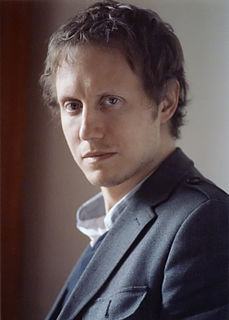A Quote by J. R. R. Tolkien
Criticism - however valid or intellectually engaging - tends to get in the way of a writer who has anything personal to say. A tightrope walker may require practice, but if he starts a theory of equilibrium he will lose grace (and probably fall off).
Related Quotes
People thrive on positive reinforcement. They can take only a certain amount of criticism and you may lose them altogether if you criticize them in a personal way... you can make a point without being personal. Don't insult or belittle your people. Instead of getting more out of them you will get less
I don't have a very high opinion, actually, of the world of criticism - or the practice of criticism. I think I admire art criticism, criticism of painting and sculpture, far more than I do that of say films and books, literary or film criticism. But I don't much like the practice. I think there are an awful lot of bad people in it.
Then the carousel started, and I watched her go round and round...All the kids tried to grap for the gold ring, and so was old Phoebe, and I was sort of afraid she's fall off the goddam horse, but I didn't say or do anything. The thing with kids is, if they want to grab for the gold ring, you have to let them do it, and not say anything. If they fall off, they fall off, but it is bad to say anything to them.
Sometimes all we need is only listening to an inner voice and remaining human in a very personal way. But even if it is a personal way, it's still a very valid way - maybe the most valid way. It doesn't have to be a collective experience or someone telling you what to do. The most sacred human experience can be a very personal one.
Creationists reject Darwin's theory of evolution on the grounds that it is "just a theory". This is a valid criticism: evolution is indeed merely "a theory", albeit one with ten billion times more credence than the theory of creationism - although, to be fair, the theory of creationism is more than just a theory. It's also a fairy story. And children love fairy stories, which is presumably why so many creationists are keen to have their whimsical gibberish taught in schools.
As there must be moderation in other things, so there must be moderation in self-criticism. Perpetual contemplation of our own actions produces a morbid consciousness, quite unlike that normal consciousness accompanying right actions spontaneously done; and from a state of unstable equilibrium long maintained by effort, there is apt to be a fall towards stable equilibrium, in which the primitive nature reasserts itself. Retrogression rather than progression may hence result.





































